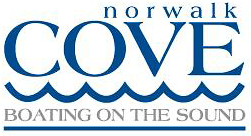America's Cup: I’m thinking Newport could be in luck….
December 20, 2013 By Eric Young, San Francisco Business Times I’m speculating here but I don’t see how the America’s Cup will come back to San Francisco. The numbers coming out today (Dec. 10) showing the level of economic impact and the likely debt the city will incur virtually assure that any talk about bringing the competition back to the bay won’t go too far. It was destined to turn out this way because the 34th America’s Cup was oversold. Desiring an economic shot in the arm, city officialdom in 2010 held out the figure of about $1 billion as an expected economic impact once the Cup wrapped up in 2013. But we see today that figure is closer to $364 million – or $550 million if you’re feeling generous and include the construction of the cruise ship terminal. Neither figure on its own is bad. In fact many large cities would love to be able to hold those numbers up as evidence of the vitality of their municipality. But those figures seem puny when compared to $1 billion. Anything short of the Big B is a letdown. Why was the event oversold? Many reasons. First, spectacles of all sorts are usually oversold because it is difficult to say precisely how much of an impact they have. It happens with the Olympics, Super Bowl, World Series, the Final Four and on and on. The America’s Cup organizers certainly were not going to rein in the financial expectations because they wanted to put on a boat race, not quibble with how much coin was going to wind up in local merchants’ bank accounts. Second, the Cup came about at a time (2010) when San Francisco’s economy needed a shot in the arm. No one — not even the event’s most ardent supporters – expected the Cup to cure all of the city’s economic ills. But attracting a high-profile event like the Cup is a quick way to attract positive PR and new dollars. At the time progressive members of the Board of Supervisors raised questions about whether the city might be left on the hook for costs. But in the end the entire board – progressives and centrists – approved the deal with the Cup. Third, no one in 2010 – when the Cup chose San Francisco – could have predicted the crazy turns that the Cup preparations would take. No one thought that there would only be just four teams contending, the lowest number in a modern America’s Cup. No one thought that the massive real estate deal involving Oracle Corp. CEO Larry Ellison and the Port of San Francisco would collapse under its own weight. San Francisco will make an offer to host the 35th America’s Cup. Ellison, who as winner of the Cup gets to pick the next location for the competition, will look at it. And he’ll go somewhere else, some place whose citizenry won’t mind dipping into the civic coffers to cover costs. The Cup experience doesn’t mean that the city should shy away from hosting high profile events in the future. It just means that the impact of those events should not be oversold from the start. Source: SF Business TimesCategories: None
